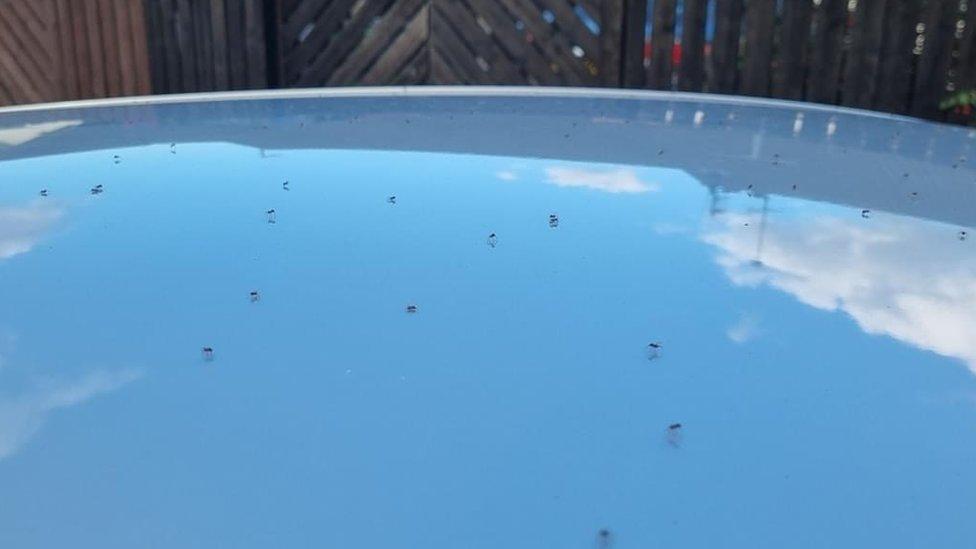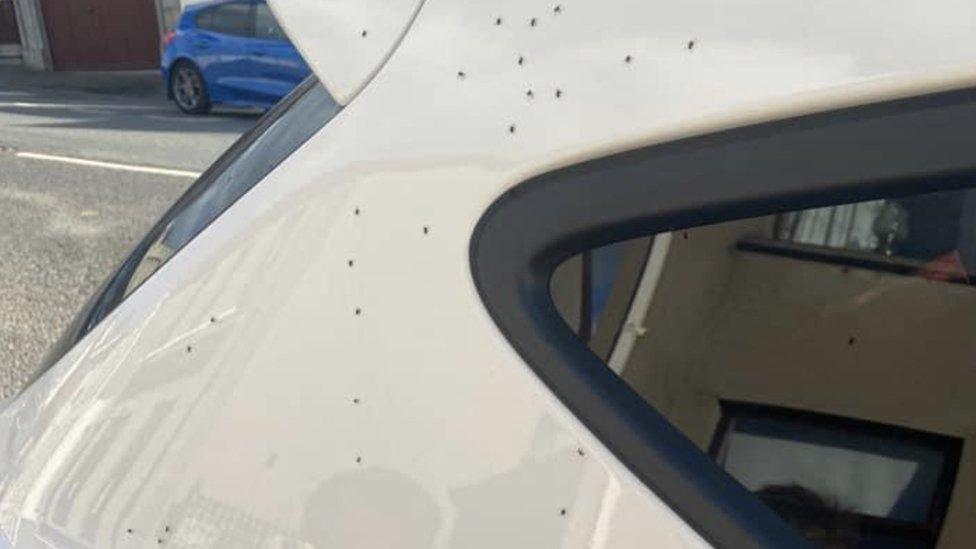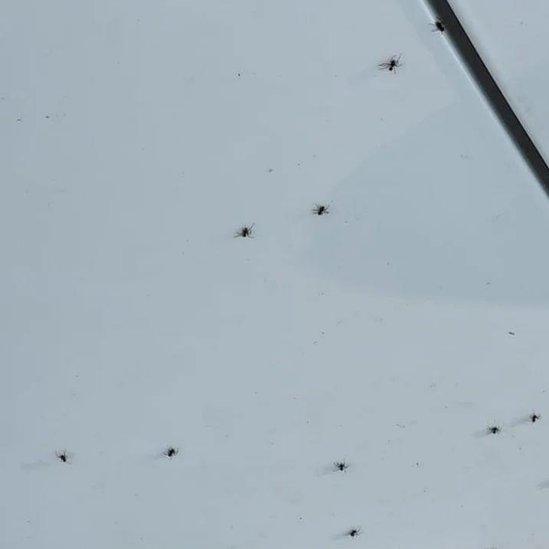Invasion of the ballooning money spiders
- Published

Masses of spiders have been spotted on cars across Northern Ireland
Horrified social media users across Northern Ireland have been posting pictures and videos of a seeming arachnid invasion.
Thousands of small spiders have been spotted crawling across cars and other outdoor surfaces in the last day or two.
One Ballymena Facebook user joked she had "nearly had to torch the car - huge trauma".
While another said: "Portadown was mad today with them.
"Still finding them everywhere after driving home half an hour away and 8 hours later!"
However, it's a perfectly natural event, particularly at this time of year.
Allow Facebook content?
This article contains content provided by Facebook. We ask for your permission before anything is loaded, as they may be using cookies and other technologies. You may want to read Meta’s Facebook cookie policy, external and privacy policy, external before accepting. To view this content choose ‘accept and continue’.
Entomologist Myles Nolan explained the behaviour is called ballooning.
"What happens is, spiders climb up onto a tall structure, they exude a little strand of silk and they kind of pull that out from them," he said.
"A long line of silk is dragged out of their body and they're so light that the silk acts like a balloon and lifts them up into the air and this allows them to disperse around.
"At this time of year and in those videos, there's a very large family of spiders called linyphiidae, also called money spiders,
"The ones in the video are most likely of a genus called erigone."
Mr Nolan said weather conditions over the last couple of days were a major factor.
"When you have these kind of mass events it means it's linked to a very large local population and the meteorological conditions are just right for them to make a move.
"There's a light breeze in the air, a bit of sun and a relatively mild kind of a day.
"When people see them on their cars, they're not targeting the cars or anything like that, they've landed there more or less by accident."

Entomologist Myles Nolan said the spiders have little control where they land
He said the spiders were very common in vegetation.
"They might have climbed up from somewhere locally or they might have been ballooning and landed where they fell," he said.
"They don't have much control at all over the direction of flight."
The entomologist stressed there is "absolutely, categorically" nothing for people to worry about.
"It can look quite intimidating, perhaps, if you're afraid of them, but they will be gone within a day or two almost certainly," he said.
"It is seasonal, this is a common time of year for this to happen and it's completely normal. The problem with these localised events is they're totally unpredictable.

Mr Nolan stressed there was nothing for people to be concerned about
"It would regularly happen that you're walking along and you might notice a little black spider has landed on you and, because there's only one of them, you don't even think about it.
"What you have in this case is thousands of money spiders and no-one particularly wants hundreds landing on you, but you have to remember those cars have been sitting there all night and all morning, so the spiders have had hours and hours to gather on them.
"If you leave the house and walk down the road you're not going to be assaulted by thousands of money spiders."